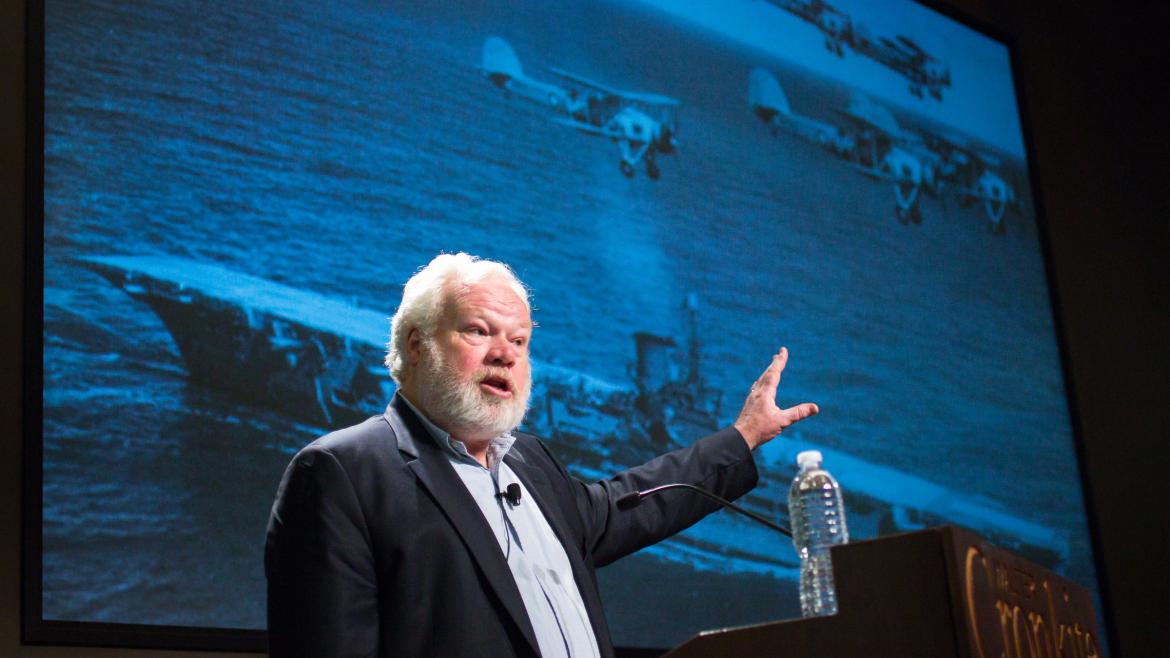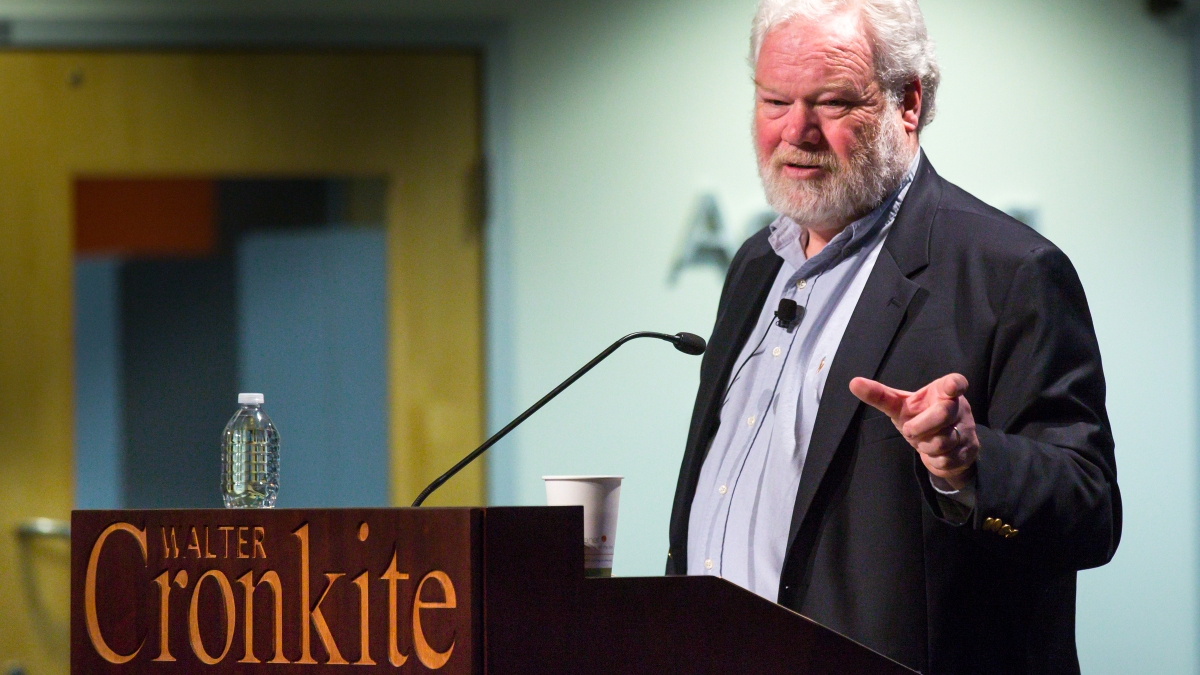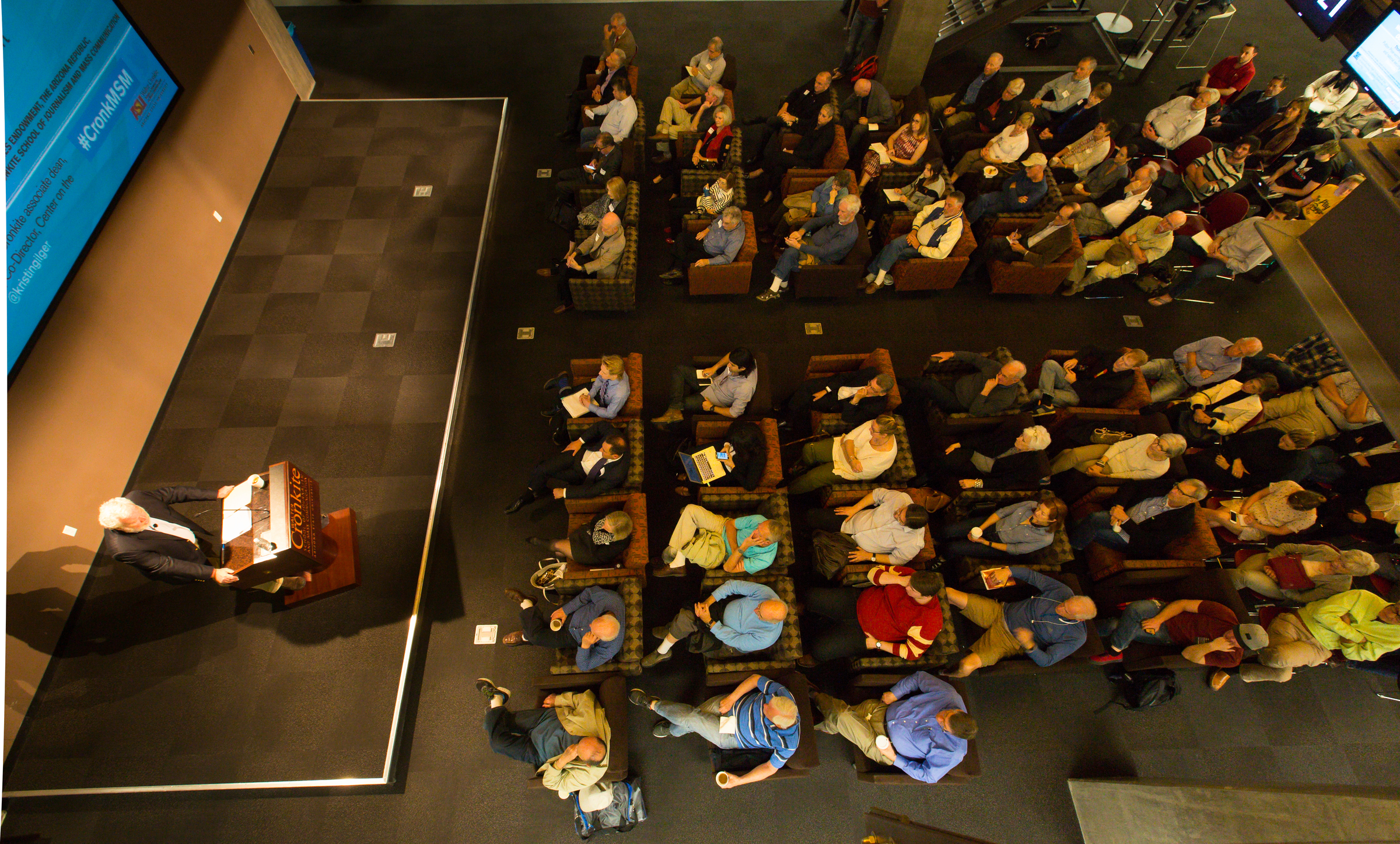Too much George Patton and not enough Steve Jobs.
Lack of innovation, rigid inflexibility instead of creative adaptivity and stubborn adherence to using past solutions for future problems are leaving the United States with a vulnerable military, said Thomas Ricks, a Pulitzer Prize-winning journalist speaking at Arizona State University Monday night.
“The U.S. Army today is like a Ferrari without a steering wheel,” Ricks told a crowd at the Walter Cronkite School of Journalism and Mass Communication. “It’s really powerful and really fast, but it has no direction.”
Ricks, who spent more than 25 years between the Wall Street Journal and the Washington Post covering the U.S. military, presented “Why I Fear We Will Lose Our Next Big War” during a free public lecture.
“We have a very large and powerful military,” Ricks said. “We spend a lot of money on it.”
He described “fighting hillbillies in Afghanistan who make our hillbillies look like George Clooney ... and they’re tying us in knots. Does that sound like the world’s most powerful military to you?”
Ricks described a conversation with then U.S. commander in Afghanistan Gen. Stanley McChrystal. McChrystal talked about going around the country interviewing officers on the ground. They told him about their current operations. He asked them what they’d do differently if they knew they’d be there indefinitely instead of a few months. “Everything,” they told him, “But we’re just keeping a lid on it.”

In his lecture "Why I Fear We Will Lose Our Next Big War" Monday at the Cronkite School, Thomas Ricks compares the current U.S. military to the British naval power from the 1930s.
Photos by Charlie Leight/ASU Now
In the Information Age, victory goes to the most adaptive, Ricks said.
“It’s not, ‘Do you have the most powerful military?’ ” he said. “It’s ‘Do you have the most relevant military?’ ... The dirty little secret of the past 15 years is that the enemy has adapted far more quickly than we have.”
ISIS sends out tweets immediately. The Pentagon convenes committees to study how to counter ISIS’ social-media strategy and then implements the findings a year later.
“We’ve been at war for 15 years now,” Ricks said. “What do we have to show for it?”
Creating adaptive leaders would be a start in the right direction, Ricks said. “We need leaders to think critically to go into ambiguous situations and figure out how to deal with those situations.”
Unfortunately, Ricks feels there will have to be a catastrophe unlike the country has ever seen before to effect change.
“We will need a wakeup call,” he said.
Daniel Rothenberg, co-director of the Center on the Future of War, introduced Ricks as “one of the country’s premier national-security journalists.”
Ricks is currently senior adviser for national security at the New America Foundation and a contributing editor of Foreign Policy magazine.
At the Washington Post, he was part of a reporting team that won the 2002 Pulitzer Prize in National Reporting for coverage on America’s war on terrorism. He also was part of a team at the Wall Street Journal that won the same award in 2000 for coverage of U.S. defense spending and military deployment in the post-Cold War era.
More than 100 people listen as Thomas Ricks, an ASU Senior Future of War Fellow at New America, delivers the 2016 Paul J. Schatt Memorial Lecture on "Why I Fear We Will Lose Our Next Big War," at the Cronkite School on Monday. Ricks says the U.S. needs a relevant, adaptive military with stealthy, smaller naval vessels that send off stealth drones.
Ricks has reported on U.S. military activities around the globe and is the author of numerous books, including the New York Times best-seller and Pulitzer Prize finalist “Fiasco: The American Military Adventure in Iraq.” His most recent book is “The Generals: American Military Command from World War II to Today.”
This year’s Schatt Lecture also is part of ASU’s Center on the Future of War Spring Speakers Series and includes an introduction by Rothenberg, co-director of the center, which explores the social, political, economic and cultural implications of the changing nature of war and conflict. See the full list of speakers here.
More Law, journalism and politics
Can elections results be counted quickly yet reliably?
Election results that are released as quickly as the public demands but are reliable enough to earn wide acceptance may not always be possible.At least that's what a bipartisan panel of elections…
Spring break trip to Hawaiʻi provides insight into Indigenous law
A group of Arizona State University law students spent a week in Hawaiʻi for spring break. And while they did take in some of the sites, sounds and tastes of the tropical destination, the trip…

LA journalists and officials gather to connect and salute fire coverage
Recognition of Los Angeles-area media coverage of the region’s January wildfires was the primary message as hundreds gathered at ASU California Center Broadway for an annual convening of journalists…



